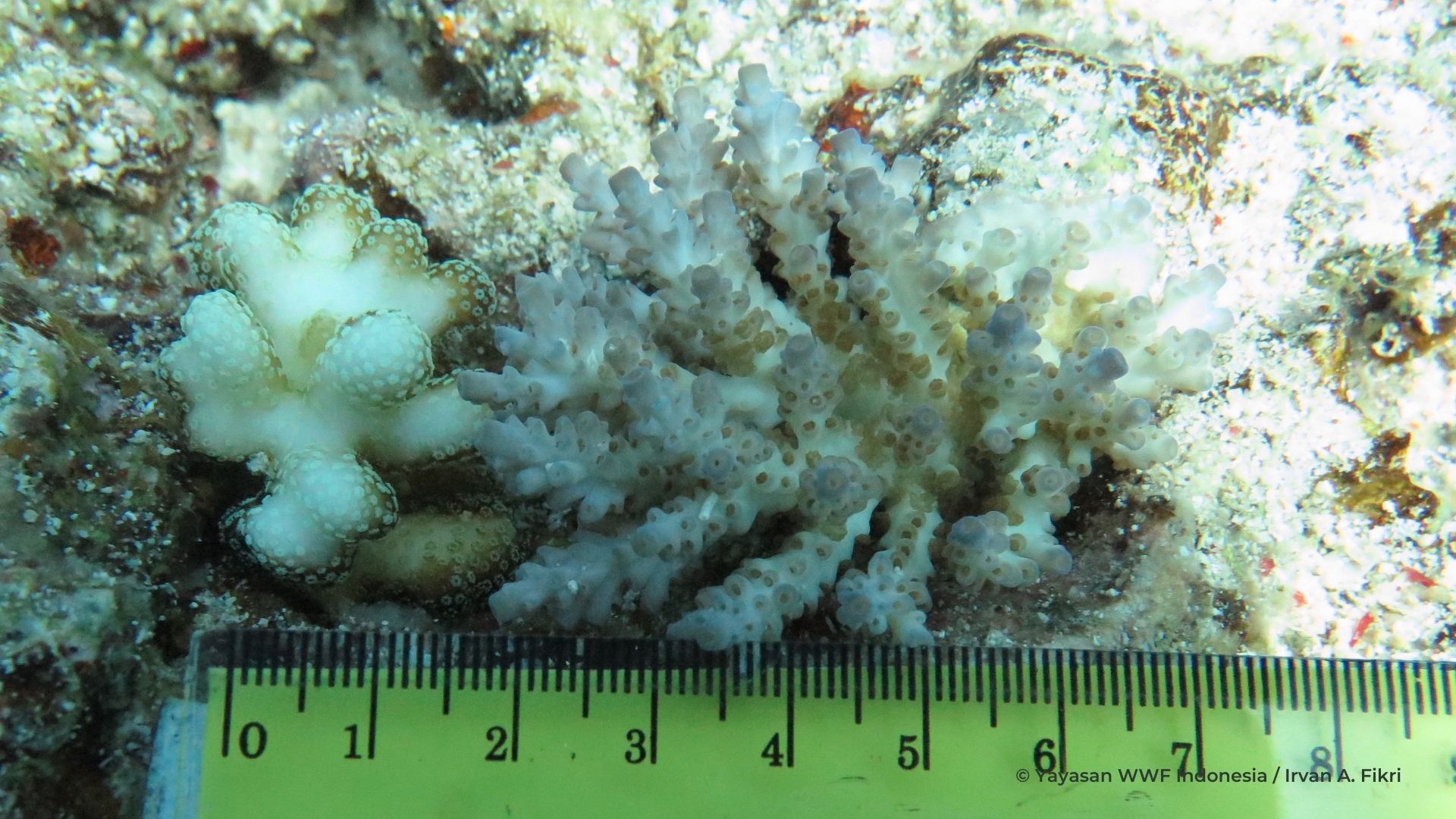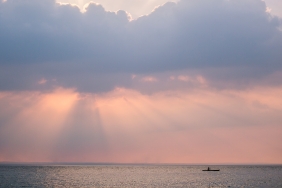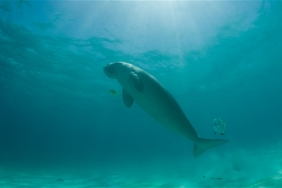COLLABORATIVE MANAGEMENT FOR THE FUTURE OF THE DERAWAN SEA
The WWF Indonesia Foundation held a workshop to present the results of the Ocean Governance Project implementation to relevant stakeholders and the wider community on December 5, 2023. In order to support efforts to restore the coral reef ecosystem in the Derawan Islands Conservation Area, WWF together with the East Kalimantan Provincial Government, Berau Regency Government, and supported by local communities, carried out coral reef rehabilitation using the rock pile method through the Ocean Governance project initiative which is supported by the European Union.
The project has been implemented from January 2021 to December 2023 in the Derawan Islands Conservation Area. This project is one of the efforts to improve the management of conservation areas through coral reef rehabilitation programs using the rock pile method, p.
Yuliana Nidyasari also revealed, "Based on the Regional Spatial Plan (RTRW) Province of East Kalimantan, from the results of the total area of coral reef cover, 22.86% of the observed area is in the excellent category, 28.50% in the good category and 33.58% in the poor category. For the Derawan Islands and Surrounding Waters (KDPS) area has a coral reef area in the good category of 30%. It is feared that the existing coral reef cover area will continue to decline if there is a lack of parties who care about the survival of the coral reef ecosystem, one of which is through a rehabilitation program".
"The coral reef rehabilitation program that has been carried out by the East Kalimantan Provincial Maritime and Fisheries Service together with WWF-Indonesia and other partners, is in line with the objectives of the Ministry of Maritime Affairs and Fisheries. There are two strategies that are recommended in the management of this conservation area, namely mutual collaboration and responsibility. This strategy is also encouraged to be carried out, both from the central government to the local government," added Sukendi Darmansyah.
.
Supported by local community groups, such as Pokdarwis Sumping Nusa and Association of Derawan Snorkeling Guides (AGSD), the East Kalimantan Provincial Marine and Fisheries Service and WWF Indonesia Foundation have conducted monitoring at the coral reef rehabilitation site four times, namely in January, May, September and November 2023 showing the presence of coral colonies attached to the rock pile structure.
Since the rockpile was lowered in July 2022, the most significant growth in coral recruitment was seen in monitoring from May to November 2023. The average coral recruitment in the rock pile unit in May was 6.83 colonies attached to each square meter (colonies/m2) and in November was 32.26 colonies, with an average coral colony growth of 13.72 per square meter. While in the control unit, the growth of coral recruitment tends to be constant in each month of monitoring. Where, in January to November 2023, the average growth of coral recruitment was only 0.77 colonies per square meter. This shows that rock piles play an effective role as a natural medium for coral planula attachment and can be a recommended coral reef rehabilitation method.
.
One of the representatives of the management team at the coral reef rehabilitation site, Rahmat, said, "Based on the monitoring results, until now it has begun to show how small corals are attached to the rock pile. It can be said, rock pile shows positive results towards the recovery of the ecosystem at that location".
Next, the rock pile will be managed by the village government and Derawan Island community groups. The grand design of the rock pile that has been made can be developed in collaboration with multiple parties so that it can become an alternative diving tourism destination, research, and education for the community, and can improve the community's economy.
Irvan Ahmad Fikri, Site Coordinator for Derawan MPA WWF-Indonesia also said, "After the end of this EU-Ocean Governance project, the Derawan Islands Conservation Area is expected to become a pilot in the Kalimantan region and also nationally in effective conservation area management.".




